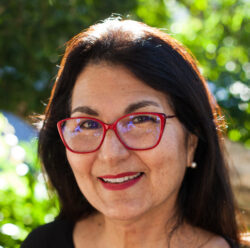 Mirette Seireg is the founder and owner of Mpath LLC, the first woman-owned library of its kind to achieve gender parity. Changing the music world for females and other underrepresented composers, Mirette has scouted talent world-wide from nearly every continent on earth.
Mirette Seireg is the founder and owner of Mpath LLC, the first woman-owned library of its kind to achieve gender parity. Changing the music world for females and other underrepresented composers, Mirette has scouted talent world-wide from nearly every continent on earth.
Mpath’s music library is represented by APM Music in North America and EMIPM in the rest of the world (both owned by Sony). In addition to managing Mpath, Mirette Seireg is an active member of the Production Music Association where she spearheaded the creation of and chairs the Inclusion and Diversity Committee, and she serves on the Mark Awards Committee. The renowned Berklee College of Music / Boston Conservatory at Berklee and Mpath have an on-going mentorship program to provide emerging composers hands-on experience.
Mpath music is curated by two-term governor of the Television Academy (Emmys) and multi-award-winning Film, Television, Advertising, Game, composer/producer, Michael A. Levine who notes, “When music is created by composers who have different life experiences, they bring different musical ideas to the table. At Mpath we feel diversity isn’t just the “right” thing – it makes the music better.”

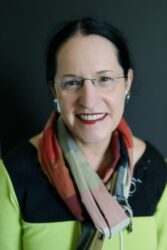
 Dr. Kallet is Professor Emerita at the University of Tennessee and is a member of the TN G100 Women Leaders. From 2009-2020, she mentored poetry groups for the Virginia Center for the Creative Arts, in Auvillar, France. Her poetry has appeared recently in Plume and
Dr. Kallet is Professor Emerita at the University of Tennessee and is a member of the TN G100 Women Leaders. From 2009-2020, she mentored poetry groups for the Virginia Center for the Creative Arts, in Auvillar, France. Her poetry has appeared recently in Plume and 
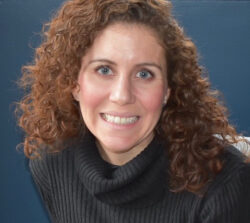 Aubrie Fennecken is the Global Executive Director of WIN: Women in Innovation, a nonprofit organization built to close the gender gap in innovation. Aubrie speaks on why equity in innovation is so critical to breaking the cycle of inequity in our world more broadly. WIN is an amazing community of innovators across the globe innovation resources. She explains what her organization is doing to address the gender gap and support innovative women.
Aubrie Fennecken is the Global Executive Director of WIN: Women in Innovation, a nonprofit organization built to close the gender gap in innovation. Aubrie speaks on why equity in innovation is so critical to breaking the cycle of inequity in our world more broadly. WIN is an amazing community of innovators across the globe innovation resources. She explains what her organization is doing to address the gender gap and support innovative women.
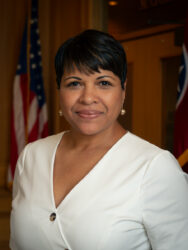 Candy Johnson: Before becoming President and CEO of the Urban League of Greater Chattanooga in January of 2021, she served as a senior advisor to Chattanooga Mayor Berke. She led community-focused initiatives to create sustainable partnerships and external investments to advance the administration’s economic, racial and social equity agenda with the goal of improving community quality of life. Johnson also led the COVID-19 Economic Recovery Alliance in partnership with Bloomberg Associates and co-created the Styles L. Hutchins Black College Student Fellowship. A native of Clarksville, Tennessee, Johnson was the youngest member ever elected to public office for the Clarksville City Council.
Candy Johnson: Before becoming President and CEO of the Urban League of Greater Chattanooga in January of 2021, she served as a senior advisor to Chattanooga Mayor Berke. She led community-focused initiatives to create sustainable partnerships and external investments to advance the administration’s economic, racial and social equity agenda with the goal of improving community quality of life. Johnson also led the COVID-19 Economic Recovery Alliance in partnership with Bloomberg Associates and co-created the Styles L. Hutchins Black College Student Fellowship. A native of Clarksville, Tennessee, Johnson was the youngest member ever elected to public office for the Clarksville City Council.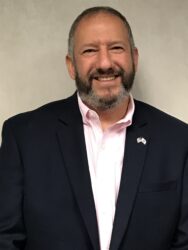 Michael Dzik: Executive Director of the Jewish Federation of Greater Chattanooga since 2001. Much of Michael’s work focuses on community relations, bringing together people of all faiths, cultures and backgrounds to find common ground and understanding while building strong connections and friendships. Through programs such as the Jewish Film Series, exhibits, speakers, and multi-faith panels, the Jewish Federation works to connect all of our Chattanooga community.
Michael Dzik: Executive Director of the Jewish Federation of Greater Chattanooga since 2001. Much of Michael’s work focuses on community relations, bringing together people of all faiths, cultures and backgrounds to find common ground and understanding while building strong connections and friendships. Through programs such as the Jewish Film Series, exhibits, speakers, and multi-faith panels, the Jewish Federation works to connect all of our Chattanooga community.
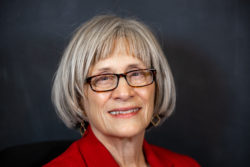
 March 2021 Black-Jewish Dialogue
March 2021 Black-Jewish Dialogue
 Jeremy Spake is a Principal on the Thought Leadership & Advisory Services team at Cornerstone OnDemand, a leading global SaaS-based talent management solution provider. In this capacity, he works to develop continuous performance management, data-driven compensation, and succession strategies to advise organizations on how to drive people theory into practice. Central to this work is providing guidance to embed talent management strategy with Diversity, Equity, Inclusion & Belonging (DEIB) initiatives for clients. Spake has led pay equity initiatives, Employee Resource Groups, advocated for inclusive benefits offerings and regularly leads talent management strategy workshops for Cornerstone’s clients around the world. He lives in Seattle with his husband David and cat Oliver.
Jeremy Spake is a Principal on the Thought Leadership & Advisory Services team at Cornerstone OnDemand, a leading global SaaS-based talent management solution provider. In this capacity, he works to develop continuous performance management, data-driven compensation, and succession strategies to advise organizations on how to drive people theory into practice. Central to this work is providing guidance to embed talent management strategy with Diversity, Equity, Inclusion & Belonging (DEIB) initiatives for clients. Spake has led pay equity initiatives, Employee Resource Groups, advocated for inclusive benefits offerings and regularly leads talent management strategy workshops for Cornerstone’s clients around the world. He lives in Seattle with his husband David and cat Oliver.